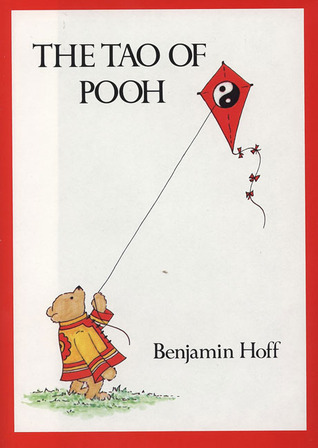Chapter 10: The Now of Pooh
byChapter 10: The Now of Pooh, Hoff reflects on why people, particularly the young, follow Pooh, a bear often described as having “a Little Brain,” on his adventures in the Hundred Acre Wood. He questions whether following one’s brain is truly the right approach, or whether it’s better to listen to “the voice within.” Hoff argues that the brain, though valuable for many tasks, fails to grasp the most important aspects of life. Intelligence and cleverness can often distance people from the world around them, creating barriers between them and the present moment. In fact, the human quest for knowledge, while noble, may be contributing to the destruction of the world. Hoff suggests that wisdom and contentment should be prioritized instead, as these are the qualities that truly connect us to life’s deeper truths.
In Taoism, the teachings emphasize listening to one’s inner voice, often referred to as following the Tao. Taoist masters understand that true wisdom comes from within, not from intellectual pursuits or external validation. Hoff explains that everyone has an inner voice that aligns with Tao, but most people are too distracted by the noise of their thoughts and the world to hear it clearly. According to Taoist teachings, this inner voice is the path to true peace and fulfillment, but it requires patience, self-awareness, and a willingness to listen. Hoff believes that every person has a combination of inner voices that resemble the characters in Winnie-the-Pooh—the wise Owl, the practical Rabbit, the pessimistic Eeyore, and the simple, content Pooh. These different voices represent aspects of the self that everyone experiences at different times, but Hoff emphasizes that people should strive to embrace the way of Pooh, whose simplicity and contentment are the true paths to wisdom.
This idea of embracing Pooh’s way is reflected in Taoist philosophy, where simplicity, stillness, and living in the present moment are considered essential to a fulfilling life. Pooh does not overcomplicate things; he simply enjoys each moment, fully immersed in whatever is happening around him. Hoff points out that Pooh, despite his perceived lack of intellect, embodies a deep wisdom that is often overlooked by those who value cleverness and intellectual achievement. Pooh’s ability to live in the present and enjoy life without overthinking is a reflection of the Taoist belief that peace comes from letting go of the need for constant striving. Taoism teaches that true happiness arises when we stop trying to control everything and instead allow life to unfold naturally, embracing whatever comes with an open heart.
In contrast, characters like Owl and Rabbit are constantly consumed by their thoughts, plans, and ideas. They are often seen as the embodiment of intellect and cleverness, yet they frequently struggle to connect with the simplicity and joy of the world around them. Eeyore, too, represents a mindset that is full of complaints and negativity, constantly focused on what is wrong rather than what could be right. Hoff highlights that while these characters have their own strengths, they often miss the deeper connection to life that Pooh effortlessly taps into. The lesson here is that while intellect and knowledge have their place, they should not overshadow the more profound wisdom that comes from living simply and fully in the present. The Taoist way, as exemplified by Pooh, is about embracing life’s flow without resistance or overthinking.
Furthermore, the teachings of Taoism and the example of Pooh encourage us to slow down, reflect, and truly experience life as it comes. Too often, in our fast-paced, modern world, people are caught up in the constant pursuit of more—more knowledge, more success, more things—without ever stopping to simply enjoy what is already present. The Tao teaches that the more we let go of unnecessary desires and distractions, the more we are able to find peace and clarity. In this sense, Pooh’s simple way of living serves as a model for achieving true contentment, where the focus is not on achieving something external, but on appreciating the moment and accepting life as it is.
When we embrace the “Now” of Pooh, we begin to realize that the path to happiness does not lie in intellectual accomplishments or material success, but in the ability to be present, content, and at peace with ourselves. Taoism suggests that true wisdom comes from listening to the quiet voice inside us and trusting that it will guide us where we need to go. Pooh’s adventures, while seemingly simple and carefree, are actually profound lessons in living harmoniously with the world and oneself. As Hoff points out, by choosing to follow the way of Pooh, we can reconnect with the essence of life and find the peace that so often eludes us when we chase after things outside of ourselves.

